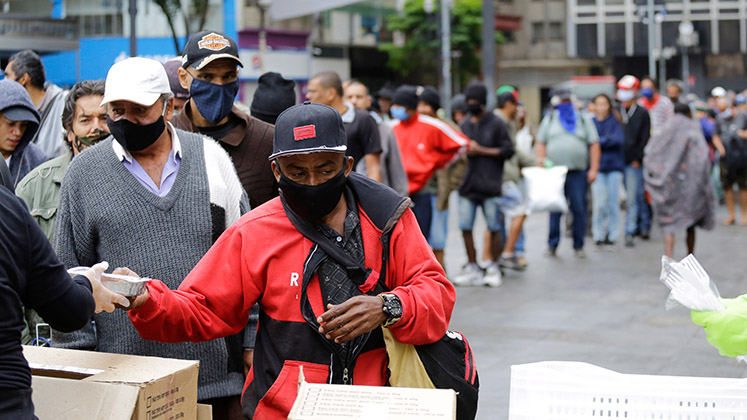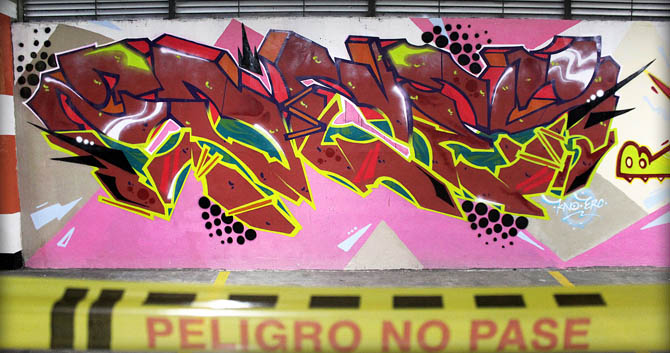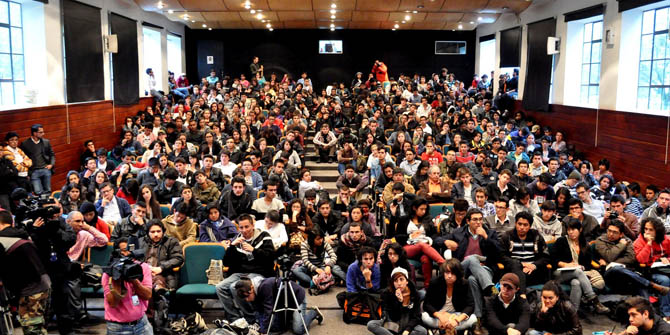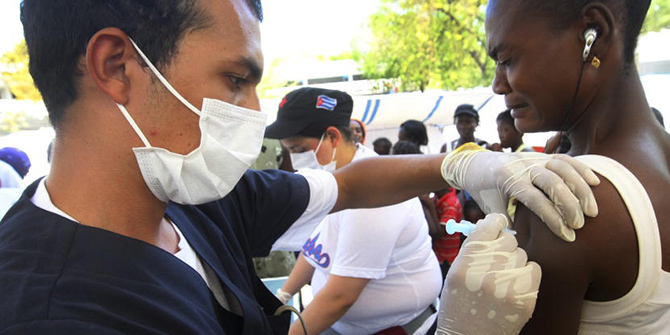Civil society organisations have provided vital support to migrant and refugee populations in Brazil during the COVID-19 crisis. Many have been forced to adapt their programmes to cover growing demand for emergency aid, with greater use of technology enabling a new hybrid way of working. But for all the problems it solves, tech can also create new ones, and ultimately it is no substitute for more durable solutions, write Marcia Vera Espinoza (Queen Mary University of London), Gisela P. Zapata (Federal University of Minas Gerais), and Flavia R. Castro (PUC-Rio).
• Também disponível em português
Brazil’s integrated, free, and universal health system seemed to put it on a better footing to fight COVID-19 than other Latin American nations, yet the country quickly came to be seen as a “warning to the whole world” as its cases and deaths rose to record levels. Soaring income inequality and President Bolsonaro’s migration policies and border closures have also meant that migrant and refugee populations have been among those most affected by the pandemic. It has fallen to civil society organisations (CSOs) in particular to play a key role in supporting these communities.

As part of our cross-regional research on migration, pandemic, and civil society, we interviewed representatives from NGOs, faith-based associations, and migrant-led organisations working with migrant and refugee populations across Brazil. While their activities and programmes vary according to their expertise, institutional arrangements, and funding, it is clear that the growth area in terms of support during the pandemic has been emergency assistance to cover basic needs.
As our project report reveals, this assistance includes provision and distribution of food parcels and food vouchers, hygiene kits, personal protective equipment (PPE), and short-term rent payments, amongst other things. In many cases, it involves partnerships with other CSOs, international organisations, and local governments. But aside from filling the gaps in provision of emergency assistance, CSOs also had a leading role in providing migrants and refugees with information about COVID-19 prevention, access to documentation, and how to apply for the the federal government’s emergency financial allowance. On top of that, they provided legal advice, language classes, and other social integration skills, as well as doing advocacy work.
But these shifts in the means and scope of their work have created new challenges, both on- and offline.
The technological turn
Like many organisations around the world, CSOs in Brazil have had to shift to hybrid modes of working due to social distancing measures, leading to greater use of technology in the provision of assistance and fewer in-person appointments. The first effect of this was that it necessitated investment in digital technology and connectivity, as well as in training staff and service-users on how to use new platforms.

Working online also meant that some organisations had to create, reactivate, or refocus on social media accounts while also adopting and adapting to platforms such as WhatsApp, Zoom, Facebook, Google Meets, and YouTube in order to deliver programmes and services like remote training and language provision.
But these new ways of working were far from hassle-free, bringing both challenges and opportunities. Several CSOs saw this digital transition as an opportunity to reach populations beyond their usual geographical scope. The digitalisation of some services also contributed to creating or expanding partnerships with organisations in other cities, either to share experiences or to mutually support activities and advocacy work. As a staff member from one NGO in São Paulo noted:
Last year we provided 415 migrants with Portuguese classes. 30% of them didn’t live in São Paulo. We are now assisting people in 22 cities and even people in other countries. We attended to people in Venezuela and Syria that will come to Brazil, because they wanted to arrive with some knowledge of the language.
These new forms of working also posed some challenges, since in many cases migrants and volunteers lacked the equipment or know-how to deal with the new technologies. In some cases, this led volunteer numbers to fall by as much as 50%, which also impacted the number of people that organisations could assist. Another São Paulo NGO staff member lamented:
Overall, by the end of 2020 we had assisted 50% less refugees than we assisted in the previous year, just about 1000 people from different places. In 2019, we provided assistance to over 2300 people.
This situation was even more notable in Rio de Janeiro, where one faith-based organisation had to stop working with volunteers entirely in order to mitigate the risks associated with giving volunteers remote access to the personal data of vulnerable populations. The lack of in-person assistance also made it difficult to create an environment of trust, which tends to be key for social workers and professionals providing mental health support in these organisations. These technological challenges led some organisations to significantly change their ways of working, which in turn reduced the number of people that they could assist and led some employees to feel overloaded.
Digital barriers and inclusion of migrants
For migrant-led organisations, however, the main challenge was to ensure provision of in-person orientation for new arrivals as well as social and cultural activities promoting inclusion. An inability to carry out in-person activities – particularly those related to cultural promotion, celebration, and exchange – significantly weakened these organisations’ capacity to generate financial resources. One such organisation in Porto Alegre reported that this essentially amounted to the loss of their main source of funding.
For migrants and refugees themselves, social distancing measures and the use of tech-based over in-person activities was sometimes felt to be undermining migrants’ integration and possibly also their struggle for basic rights. According to staff from one CSO in São Paulo, the lack of physical spaces for interaction between migrants and refugees will have a profound impact on their current and future prospects for integration in Brazilian society, given that many face poor access to the internet, online services, and public information about their rights.
Overall, the technologisation of assistance and CSOs’ ability to transform their usual practices in order to support migrants’ basic needs shows the immense capacity of these organisations to adapt in times of crisis. However, it also demonstrates the fragile position of migrants and refugees in Brazil as well as their heightened vulnerability during the pandemic. Many of the CSOs in our study reported that they will continue with a hybrid format in future, embracing some of the benefits of online support while easing restrictions on in-person activities.
But they also emphasised the need to move away from providing emergency assistance and towards activities that promote long-term integration and durable solutions for these populations. As one representative of a faith-based organisation in Boa Vista told us: “We need to think about structuring our work towards durable solutions: accompanying families over a long period of time, helping them to rescue their dignity and be self-sufficient. Aid is usually time-limited and no one wants to be dependent for the rest of their lives…”
Notes:
• The views expressed here are of the authors rather than the Centre or the LSE
• Please read our Comments Policy before commenting




